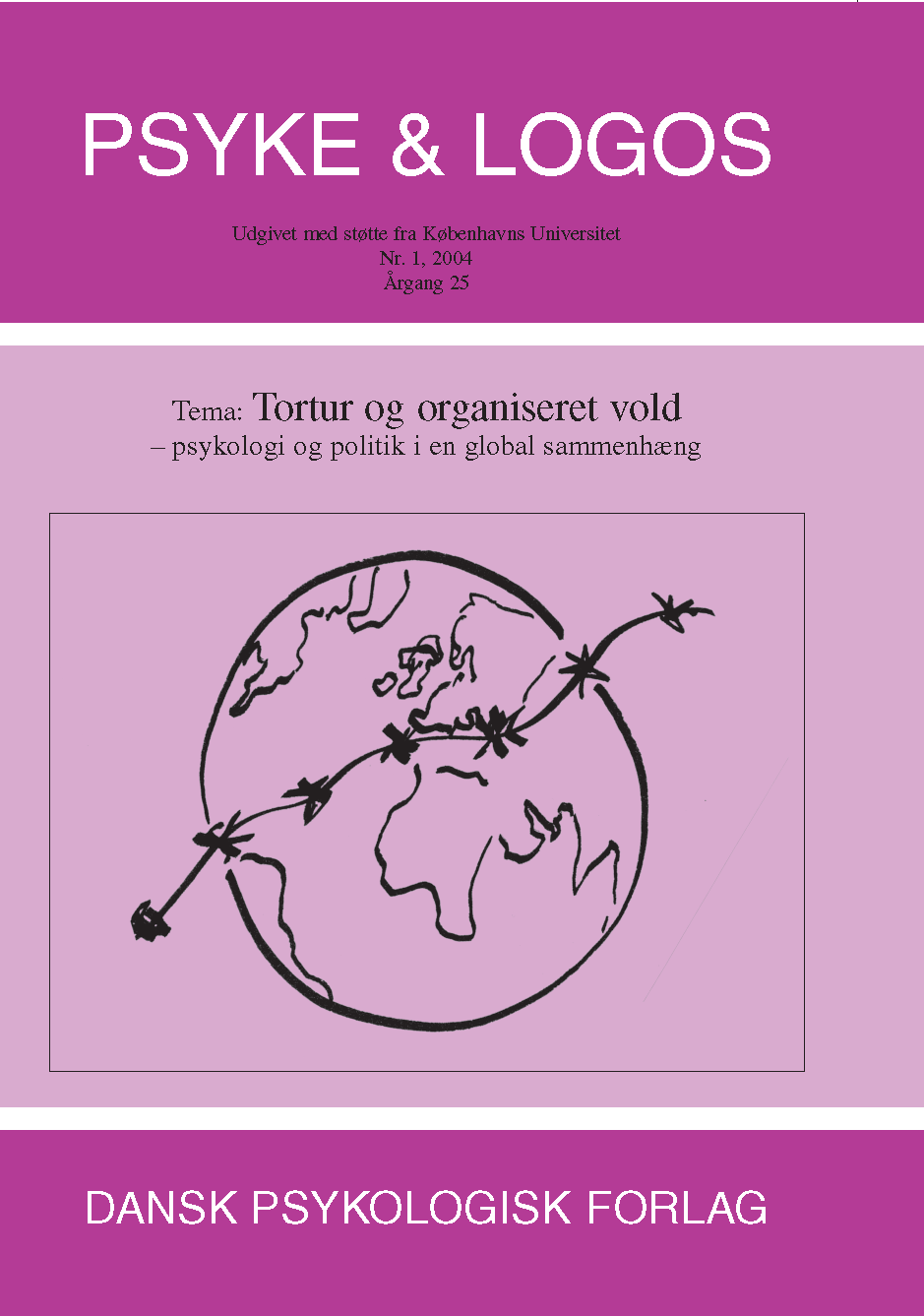IMPACT ASSESSMENT IN REHABILITATION OF TORTURE SURVIVORS – a long-term research strategy based on a global multi-centre study design. Part I: Theoretical considerations
DOI:
https://doi.org/10.7146/pl.v25i1.8659Keywords:
Torture, Organizered violence, RehabilitationAbstract
Accumulated evidence that torture and other related human rights violation produces health-related consequences that require health professional assistance, has been the point of departure for the development of a global association of rehabilitation centres specialised in rehabilitation of torture survivors. The work field of torture is therefore a work field with an applied clinical practice rooted in a health professional paradigm recognising, though, the importance and influence of the socio-political and legal dimension of torture as a trauma and in service provision.
In spite of a long history of rehabilitation of torture survivors, very few questions within service provision are answered. The implications of this shortcoming of knowledge are: 1) that effectiveness information on rehabilitation of torture survivors is not available, and 2) that no clear and scientifically valid recommendations on the organisation and functioning of rehabilitation services, and the intervention they offer in different socio-cultural contexts can be put forward.
Given the uniqueness of torture as a trauma, the complexity of the health-related consequences with numerous contributing and modifying factors and the diversity of provided rehabilitation services to torture survivors, outcome research in this area is complex. The scientific approach implicates a series of methodological challenges and the use of combined research methodologies applied in several steps in order to ensure validity of the results.
Research qualified of producing such knowledge will demand a shift from the traditional discipline-centred mode of knowledge production towards a broader conception of knowledge production, where knowledge is generated in the context of application and addresses problems identified through continual dialogue between actors from a variety of settings. The present article is a presentation of a long-term research strategy – The Impact Assessment Study – based on a global multi-centre study design and comprising 5 phases.
The strategy has been developed with the aim of conducting a systematic »mapping« of the work field of torture, and the clinical practice applied in multidisciplinary rehabilitation of torture survivors. The main objective of the overall study is to assess if, how and to what extend rehabilitation at specialized centres provided in different socio-cultural contexts improves the well-being of torture survivors, and based on the achieved knowledge to establish empirically founded »best practice guidelines« for the future clinical work.
Point of departure in the article will be an introduction to some of the theoretical considerations behind the research strategy, focusing on outcome assessment from a health professional perspective – what are we to measure? – and the nature of the existing knowledge-base within rehabilitation of torture survivors – the scientific state of the art.
Downloads
Published
How to Cite
Issue
Section
License
Ophavsret er tidsskriftets og forfatternes. Det er gældende praksis, at artikler publiceret i Psyke & Logos, som efterfølgende oversættes til andet sprog, af forfatteren frit kan publiceres i internationale tidsskrifter, dog således at det ved reference fremgår, at den oversatte artikel har et forlæg i en dansksproget version i Psyke & Logos. Artikler kan frit deles og linkes til på forsknings- og undervisningsnetværk (så som Blackboard). Link foretrækkes, fordi det giver oplysning om brug af tidsskriftets artikler.




